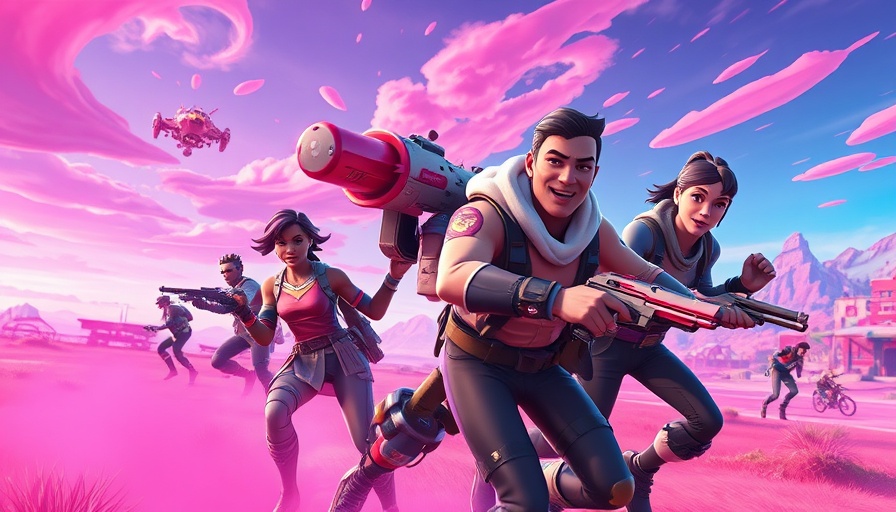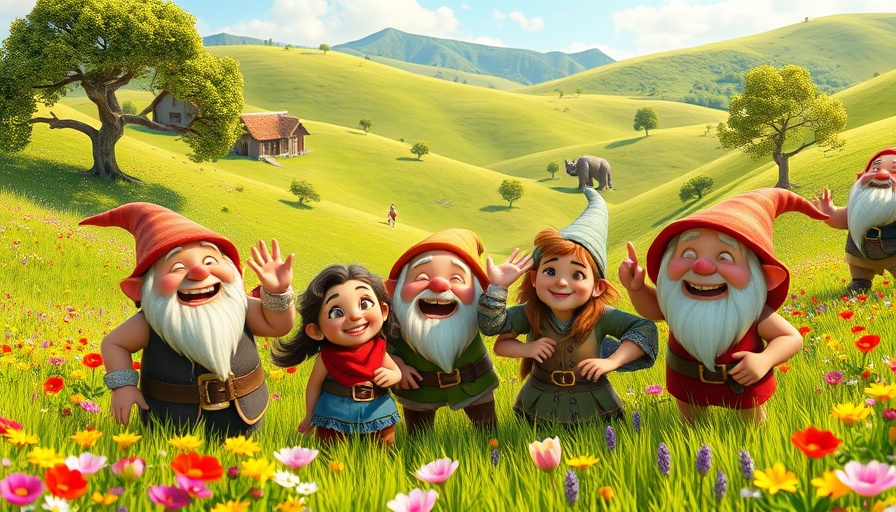
The Future of Gaming: Is Fortnite Really Ruining the Industry?
Epic Games CEO Tim Sweeney has recently come forward to defend his flagship game, Fortnite, against claims that it is “ruining” video games. Launched in 2017, this immensely popular battle royale has transformed into a cultural phenomenon, drawing in an average of 1.1 million players daily and initiating high-profile collaborations with icons such as Spider-Man and Kendrick Lamar.
Understanding the Backlash: Concerns and Criticisms
Gamers have voiced concerns that the mainstream success of Fortnite has altered the landscape of gaming, with a rise in collaborations and unrealistic in-game items extending beyond its realm to other franchises like Call of Duty. With Fortnite's unique formula attracting players for its vibrant graphics and social connections, some enthusiasts argue that the focus on collaborations detracts from traditional gameplay qualities.
A Closer Look at the Impact of Cultural Crossovers
The success of Fortnite's crossovers with celebrities has highlighted a new trend within the gaming industry, where franchises are strategizing to create a more engaging environment for players. For instance, events featuring artists like The Weeknd and Sabrina Carpenter aim to attract diverse audiences, illustrating a shift toward a more integrated approach to multimedia entertainment. Critics may argue this leads to a dilution of game experiences, but proponents see it as a way to broaden the gaming community.
The Role of Community in Gaming Evolution
Sweeney articulates that games like Fortnite actually uplift the entire gaming industry, suggesting that “everybody benefits from the rising tide that lifts all ships.” This perspective aligns with the idea that Fortnite’s success serves as a catalyst for innovation across various titles, potentially inspiring other developers to think creatively and outside the box.
Exploring Possible Future Trends
As the gaming community evolves, we may continue to see an increase in cross-genre collaborations. This could mean further integration of live events and popular culture into video games. We might also see a rise in the inclusion of educational elements aimed at younger audiences, creating a well-rounded entertainment experience. Developers could capitalize on this trend to instill not only fun but meaningful narratives that resonate with players.
What This Means for Future Game Development
Moving forward, the challenge for game developers will be to find the right balance between innovation, collaboration, and preserving traditional gameplay elements. While Fortnite has changed the dynamics, the notion of what constitutes a successful game could be revolutionized. As competition heightens, developers are tasked with being ever more creative than their predecessors.
Engaging the Community: Gamers' Voices Matter
Although the debate around Fortnite and its impact on the gaming industry may persist, it serves as a reminder of the vital role gamer feedback plays in shaping the future of game development. By understanding the desires and concerns of their community, developers can establish a harmonious and engaging gaming environment for everyone.
As we reflect on these issues, it becomes clear that the evolution of gaming is integral to the broader cultural narrative shaping our experiences.
 Add Row
Add Row  Add
Add 




Write A Comment